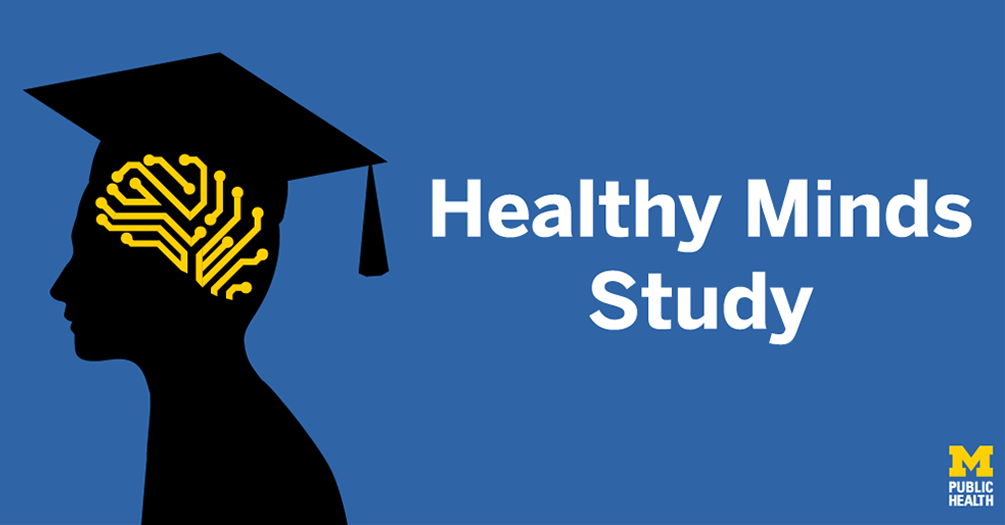College Students' Anxiety, Depression Higher Than Ever, but So Are Efforts to Receive Care

New research from Justin Heinze
Associate Professor of Health Behavior and Health Education
While rates of anxiety, depression and suicidal thoughts are at all-time highs, more college students than ever before report receiving therapy or counseling, according to a new national data report.
The 2021 Winter/Spring Data Report from the annual Healthy Minds Study is based on web surveys taken by 96,000 US students across 133 campuses in the 2021-22 academic year. It found that 44% of students reported symptoms of depression, 37% reported anxiety disorders and 15% reported having seriously considered suicide in the past year—the highest recorded rates in the history of the 15-year-old survey.
More positive data showed that more than a third of students surveyed, also a record, reported having one or more therapy or counseling sessions in a one-year time period. Between 2020 and 2022, the number of students that participated in counseling or therapy increased from 30% to 37%, the most significant increase since 2018.
Additionally, the use of alcohol was at its lowest in the survey's history with 54% of students reporting no alcohol use in the two weeks prior to taking the survey.
"I'm concerned, but there is also some reason for optimism," said Justin Heinze, associate professor of health behavior and health education at the University of
Michigan School of Public Health and a principal investigator of the Healthy Minds Network, which administers the study.
"We need to understand what's driving rates of depression, anxiety and suicidality in college students, but I'm glad we're seeing more students accessing services and drawing on other forms of social support," he said. "The goal now is to continue to build out these services and support networks, and I think campuses increasingly recognize they are in good positions to do so."
Heinze and colleagues from Wayne State University, Boston University and the University of California, Los Angeles, say the findings underscore the ongoing need for new strategies and resources to support students' mental health individually and collectively.
Postsecondary institutions are increasingly committed to providing mental health resources, with many implementing more accessible and robust strategies to accommodate the spectrum of mental health and emotional well-being needs of their student populations. The researchers hope the report will be used by faculty, staff and administrators to further identify, implement and advocate for resources to support students in positive mental health and well-being efforts—and to keep in mind the varied and diverse needs of student populations.
"There is also an urgent opportunity to better support the mental health of minority student populations, including LGBTQIA+ students, who are more likely, on average, to report suicidal ideation and students of color, who are less likely, on average, to access mental health treatment," said Sarah Ketchen Lipson, assistant professor of health law policy and management at the Boston University School of Public Health and a principal investigator of the study.
"I say 'opportunity' because our data indicate not only enormous inequalities in mental health outcomes but also in student persistence and retention. We know that poor mental health is a key driver of students dropping out of college. Therefore, investing in the mental health of minority populations is likely to benefit not only individual well-being but also institutions' bottom lines."
Additional principal investigators of the Healthy Minds Study: Daniel Eisenberg, Fielding School of Public Health, University of California, Los Angeles and Sasha Zhou, Department of Public Health, Wayne State University.
The Healthy Minds Study examines mental health, service utilization and related issues such as mental health stigma among undergraduate and graduate students. Since its national launch in 2007, HMS has been fielded at over 450 colleges and universities, with over a half million survey respondents.
Media Contact
Destiny Cook
PR and Communications ManagerUniversity of Michigan School of Public Health734-647-8650

